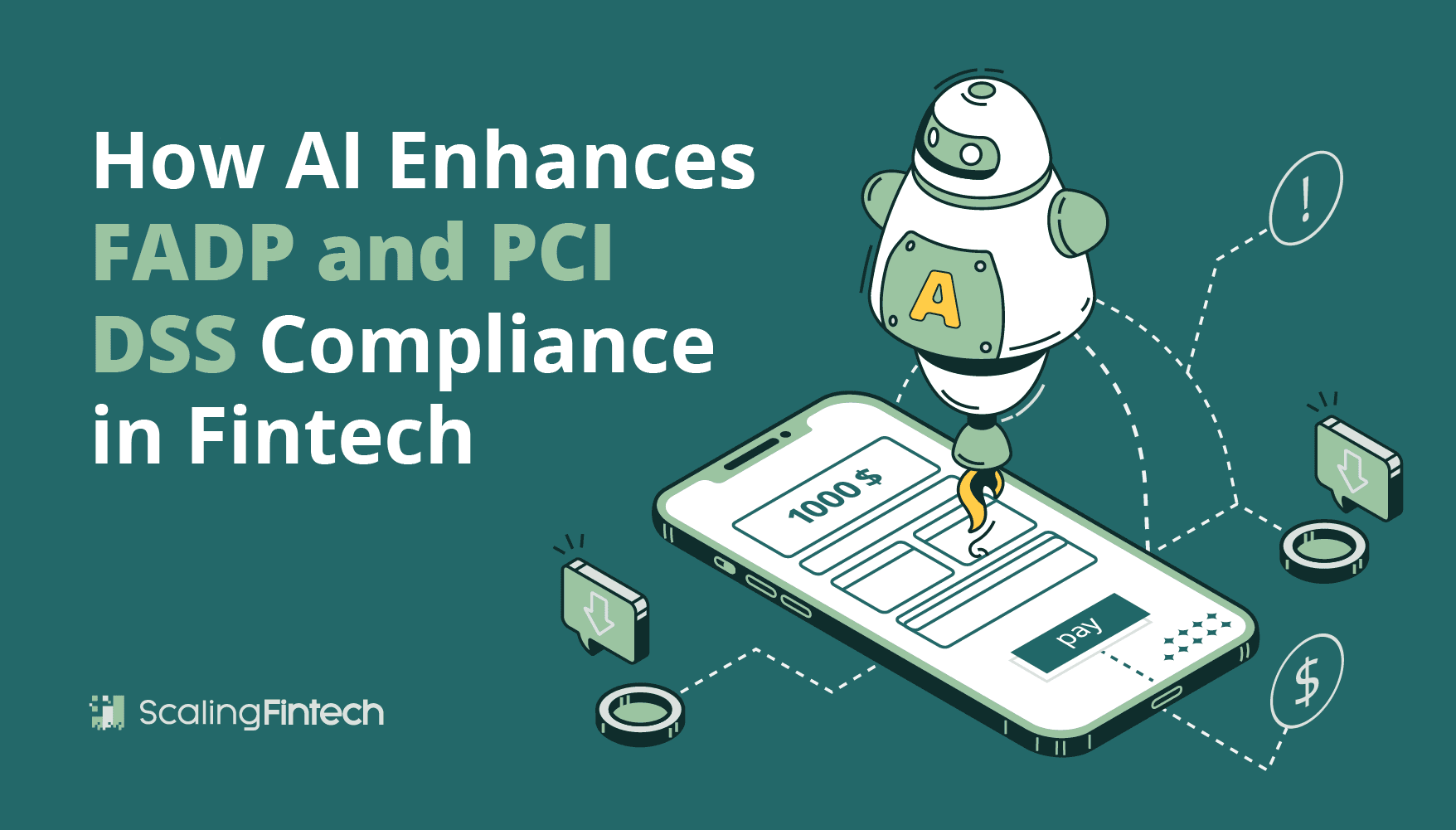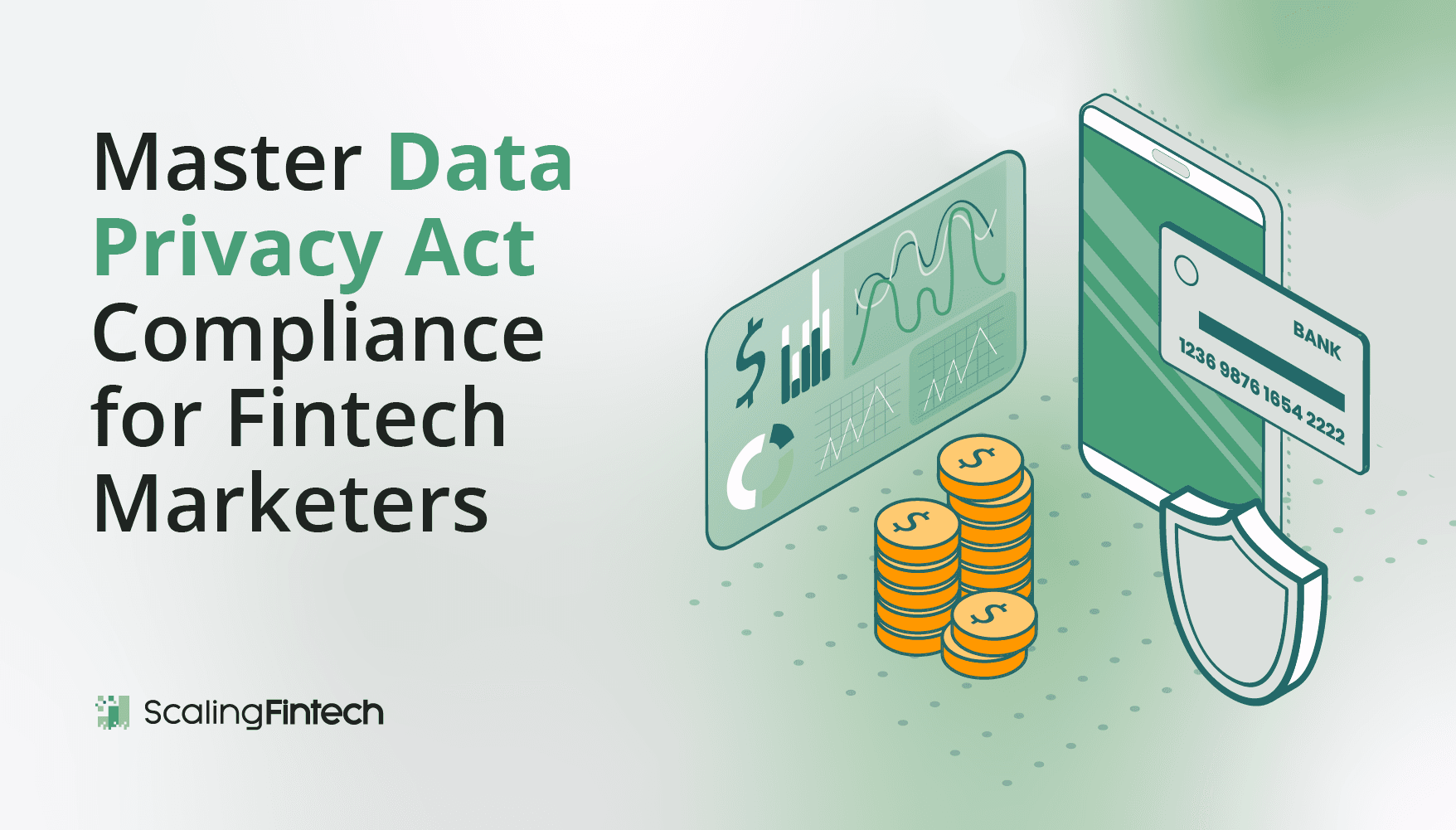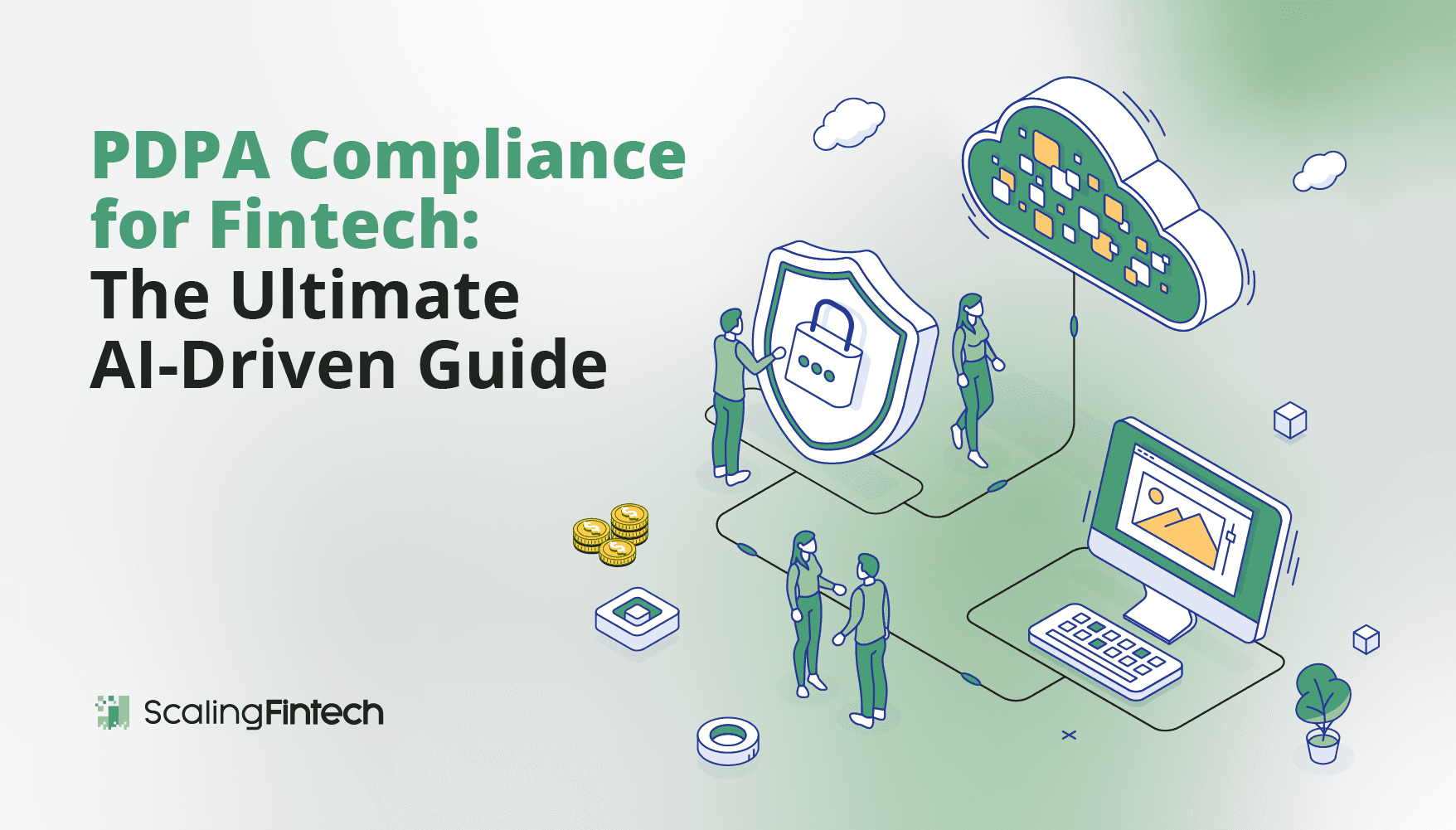Image Source: Scaling Fintech
In the fast-changing fintech world, understanding the California Consumer Privacy Act (CCPA) is vital for data privacy compliance. It is a key law that shapes data practices and sets new standards for data protection compliance in the U.S.
This guide unpacks the CCPA’s 2025 impact on fintech firms, offering insights for compliance and building consumer trust. The CCPA, often compared to the General Data Protection Regulation (GDPR) in Europe, has set a new benchmark for data protection laws in the United States.
The CCPA gives California residents more control over their personal information. Fintech companies handling sensitive data must know and apply CCPA rules, not just to avoid fines but to build trust through strong data security compliance. Let’s examine the CCPA’s key provisions and explore strategies for fintech firms to thrive under these new data regulations.
Why CCPA Matters for Fintech
As we enter 2025, the CCPA remains a cornerstone of U.S. data privacy law. For fintech firms, compliance is vital for growth and consumer trust in an industry where data protection is crucial. The CCPA grants California residents extensive rights over their personal information, presenting both challenges and opportunities for fintech companies. CCPA compliance demonstrates that a company meets legal requirements and positions it as a trusted keeper of consumer data in California’s fintech sector.
Defining Personal Information Under the CCPA
The CCPA provides a broad definition of personal information, including a wide range of data points:
- Identifiers (names, IP addresses)
- Commercial data (transaction history)
- Biometric data (fingerprints, facial recognition)
- Geolocation data (precise location tracking)
- Professional information (employment history)
- Audio and visual records (recordings, video data)
This broad definition requires fintech firms to rethink their data practices, especially concerning sensitive personal information.
CCPA Consumer Rights
Under CCPA, California residents have six fundamental rights regarding their personal information:

Image Source: Scaling Fintech
- Right to Know: What personal information is collected and how it’s used.
- Right to Access: Ability to request a copy of personal data held by the company.
- Right to Delete: Consumers can ask for their personal information to be erased.
- Right to Opt-Out: Option to prevent the sale of personal data.
- Right to Non-Discrimination: Protection from penalties for exercising CCPA rights.
- Right to Sue: Legal action in cases of data breaches involving unencrypted information.
Fintech firms must plan their data handling and customer communication strategies to implement these rights, focusing on privacy by design principles similar to those found in GDPR.
Compliance Obligations Under CCPA
The CCPA also imposes specific obligations on businesses:
- Notifying consumers about data collection practices at or before the point of collection.
- Implementing security measures to safeguard consumer information.
- Offering a “Do Not Sell My Information” link on websites.
- Training staff on how to manage privacy inquiries and requests.
By embracing these requirements, fintech firms can build trust with customers and align with U.S. data privacy laws for financial services.
Responding to Consumer Requests
Fintech companies must respond to consumer requests within 45 calendar days, with a possible 45-day extension if needed. Fintech companies must ensure they have proper identity verification procedures and accessible request channels—such as email or phone—to meet these standards. Companies have a 30-day window to fix violations once they’ve been notified by regulators to avoid penalties.
Who falls under CCPA compliance?
CCPA rules apply to for-profit fintech in California that meet one of these criteria:
- Annual gross revenue exceeds $25 million from the previous calendar year.
- They process the personal information of 100,000 or more California residents or households.
- At least 50% of their annual revenue comes from selling or sharing consumer data.
Meeting these criteria means adhering to CCPA regulations, particularly in how fintech handles sensitive financial and transactional data.
Key CCPA Compliance Requirements for Fintech
CCPA compliance requires transparency, strong data control, and robust security practices. Here’s how these provisions affect fintech:

Image Source: Scaling Fintech
Enforcement and Penalties
The CCPA’s enforcement mechanisms have significant implications for fintech businesses handling consumer data. Companies must now follow a strong framework that ensures compliance through regulation and private lawsuits, similar to the accountability principles found in GDPR.
Role of the California Attorney General
The California Attorney General spearheads CCPA enforcement, conducting proactive sweeps and responding to consumer complaints about potential violations.
When violations occur, the Attorney General gives organizations a 30-day notice. This grace period helps businesses fix compliance issues before penalties begin, allowing companies to address problems without facing immediate fines.
Potential Non-Compliance Penalties
Regulators consider many factors when determining penalties, assessing the violation’s nature, severity, and duration. The number of affected consumers plays a crucial role, and a company’s ability to pay also influences the final penalty amount.
The CCPA uses a two-tier system for civil penalties based on violation types:
- Unintentional – $2,500
- Intentional – $7,500
Consumer Legal Action for Data Breaches
The CCPA allows consumers to sue businesses for data breaches involving “non-encrypted and non-redacted personal information.” Consumers can seek:
- $100 to $750 in statutory damages per incident.
- Actual damages exceeding statutory amounts
- Injunctive or declaratory relief.
Recent cases highlight the financial impact of non-compliance. Tilting Point Media paid $500,000 for children’s data violations. DoorDash settled for $375,000 over unauthorized data sharing. Sephora faced a $1.2 million penalty for CCPA violations.

Image Source: Scaling Fintech
To meet CCPA requirements, fintech companies need robust data management and privacy practices. Comprehensive protocols that protect consumer data while optimizing operations are essential for data regulatory compliance.
These practices help organizations safeguard information and meet regulatory demands. Compliance requires thorough preparation. Here are key steps for fintech companies:
Data Mapping and Inventory
Begin by creating a clear map of your data. Identify the personal information you collect, where you store it, and how you use it. This step helps you understand your data practices and make informed choices for compliance.
To build a strong foundation for CCPA compliance, start with thorough data mapping and documentation. Fintech companies need to make a complete list of personal information within their systems. Track how data moves in and out and document how you use, store, and process that data.
Since over 80% of work is now done in the cloud, it is crucial to monitor how data flows through your cloud services. This is important for protecting data and following data protection
Revamping Privacy Policies
To meet CCPA standards, organizations must update their data privacy policies to provide accurate information about their data practices. Key elements to include are:
- Data Collection Scope – Types of personal information gathered and processed.
- Purpose of Use – Reasons for collecting and handling information. Data Sharing
- Practices – How third parties share information.
- Consumer Rights – Steps for requesting access, changes, or deletion.
- Identity Verification – Process for confirming the requester’s identity
To stay compliant, companies should review and update these notices annually, aligning them with the latest CCPA text and CPRA regulations.
Streamlining Consumer Request Handling
Efficient systems for managing consumer data requests are essential. The CCPA mandates a 45-day response window, extendable by another 45 days if needed.
Companies must verify requesters’ identities and maintain request records for two years.
An effective request system must uphold consumers’ data subject rights, allowing them to access, delete, and opt out of data sales.
Businesses must offer at least two submission methods. Physical stores need a toll-free number, while online-only firms can use email for correction requests.
This process is vital for CCPA identity and access management in fintech.
Conducting Thorough CCPA Readiness Assessments
A thorough readiness check is vital to assess current privacy practices against CCPA requirements and GDPR standards where applicable. This assessment should cover data handling across all business units.
Companies with data on 10 million+ users must document a training policy and implement it.
Key assessment areas include:
- Data Inventory – Current data collection and storage methods
- Processing Activities – How companies use and share personal information
- Security Measures – Existing data protection protocols
- Consumer Rights – Processes for handling privacy requests
- Documentation – Record-keeping and policy documentation practices
Developing a Strategic Compliance Roadmap
Based on assessment findings, create a well-structured compliance roadmap. It should include data mapping, flow analysis, and updated processes to build a comprehensive privacy program aligned with both CCPA and relevant aspects of GDPR.
This approach provides a method to implement CCPA rules while maintaining business operations without interruption.
Key Implementation Steps:
- Map Data Flows: Identify and document how personal information moves through your systems.
- Update Privacy Policies: Clearly explain data collection, usage, and sharing practices.
- Streamline Consumer Request Handling: Implement robust systems for managing opt-outs and deletion requests.
For example, A financial services firm in California integrated a ‘Do Not Sell My Information’ link on its homepage, enhancing transparency and reducing opt-out requests by 20%, showing that proactive measures can reduce operational burdens.
By following these steps, fintech firms can ensure CCPA compliance. This proactive approach meets regulations and demonstrates a commitment to protecting consumer data.
Employee Education and Awareness
Staff training is crucial for CCPA compliance. Team members handling consumer data need in-depth training to achieve high performance, similar to the requirements for a data protection officer under GDPR.
Key training areas include:
- Understanding CCPA requirements and consumer rights.
- Procedures for handling consumer requests.
- Data security best practices
- Documentation protocols
- Incident response procedures
Annual training sessions keep staff updated on compliance requirements. Organizations must keep records of training and test results to ensure compliance with data practices.
Continuous Monitoring and Upkeep
CCPA compliance demands ongoing oversight and updates to privacy practices. Regular audits of compliance practices help companies identify areas for improvement, ensuring compliance with evolving privacy standards and data compliance regulations.
Key Monitoring Activities:
- Regular privacy policy reviews and updates.
- Periodic assessment of data-handling methods
- Verification of third-party vendor compliance
- Maintenance of compliance activity records
- Swift adaptation to regulatory changes.
Companies must maintain 24-month compliance records. Privacy software can automate consumer requests and track preferences.
Strong cybersecurity measures are vital for sensitive data. This includes data encryption and access controls to enhance data security measures.
Vendor management is crucial. Review contracts, check third-party compliance, and conduct audits of partners to maintain privacy and ensure they act as proper data processors.
Image Source: Scaling Fintech
Leveraging AI and advertising for fintech compliance
AI technology can be a powerful ally in achieving CCPA compliance and adhering to other data protection laws like HIPAA and GDPR.
AI-Enhanced Data Management
AI-powered tools can streamline compliance by automating data mapping, processing opt-out requests, and verifying identities. For example, some FinTech firms use AI to anonymize consumer data in real time, balancing personalization in ads while respecting consumer privacy under CCPA.
Privacy-Compliant Advertising
AI-driven, privacy-compliant ads let fintech firms target audiences without breaching data privacy. Transparent ad strategies build trust and support compliance with privacy regulations.
To learn about AI’s role in businesses, watch this TED Talk by Andrew Ng. It shows how AI can empower businesses while maintaining data protection compliance:
https://www.youtube.com/watch?v=reUZRyXxUs4&ab_channel=TED
Compliance Strategies for AI-Driven Advertising in FinTech
To ensure CCPA compliance, FinTech firms using AI for ads can adopt key strategies:
- Minimize Data: Collect only essential data for specific services. This reduces breach risks and aligns with CCPA’s data limitation focus. For example, use anonymized behavior data instead of extensive demographics for insights without identifying individuals.
- Regular Privacy Checks: Conduct periodic audits of data practices to spot compliance gaps. Review collection methods, storage, and security protocols to ensure adherence to current rules.
- Easy Opt-Out Options: Provide clear ways for consumers to opt out of ad data collection. This builds trust and meets CCPA requirements. For instance, include an opt-out button on every ad page for simple consent withdrawal.
How Scaling FinTech Supports CCPA Compliance and Growth
Scaling FinTech helps FinTech firms follow the CCPA, GDPR, and other data regulations to expand globally while navigating the complexities of data protection compliance.
Our team uses deep industry knowledge and advanced, AI-driven strategies to address complex issues of ads, regulations, and data security across regions. These are vital to the fintech sector. Here’s how we can help you:
- Compliance-Centric Marketing: Our campaigns follow CCPA, GDPR, and PSD2. This guarantees the secure growth of your fintech brand while complying with regulations.
- AI-Powered Performance: We leverage advanced AI tools to maximize campaign efficiency. This drives growth while maintaining unwavering compliance with all relevant regulations.
- Real-Time Analytics: Access live dashboards that display key campaign metrics. This empowers you to make data-driven decisions with speed and confidence.
- Specialized Fintech Knowledge: Scaling FinTech focuses only on the fintech industry. This unique focus ensures that your growth strategies meet compliance standards and address specific fintech data regulations.
FinTech companies can book a FREE Growth Strategy Consultation to receive expert help with complex regulations and data protection compliance.
Conclusion
In summary, CCPA compliance in the FinTech industry is an evolving process that demands robust privacy protocols, consumer transparency, and continual adaptation. By adopting data mapping, policy updates, and AI-driven tools, FinTech companies can meet CCPA and CPRA standards, fostering trust and aligning with regulatory best practices.
As FinTech firms continue to innovate, maintaining a proactive, consumer-first approach to privacy will be key to navigating the evolving landscape of data protection laws.

Image Source: Scaling Fintech
Common Questions
What does CCPA compliance entail?
The California Consumer Privacy Act (CCPA) is a data privacy law. Complying with it means following the law’s requirements for businesses that handle the personal information of California residents. It gives Californians rights over their personal data collected by businesses, emphasizing control and transparency in data practices, similar to GDPR but with some key differences.
What are the key CCPA regulations?
CCPA regulations guide businesses on complying with the California Consumer Privacy Act. They detail how to inform consumers of their rights, handle requests, verify identities, and manage minors’ data. These regulations form the core of the California privacy law framework and are essential for data regulatory compliance.
What’s involved in CCPA verification?
CCPA verification has three key principles. First, it must consider the nature, sensitivity, and value of the personal information. Second, it must assess the risk of harm from unauthorized access or deletion. Third, it must evaluate the risk of fraudsters seeking the data. This process is crucial for maintaining the integrity of data access rights and aligns with data protection principles found in GDPR.
How does CCPA compliance impact fintech companies?
Fintech firms must be transparent in their data practices, respect consumer privacy, and secure personal information. It also means adapting to fintech data regulations and ensuring data protection in financial services. This often requires a comprehensive review of data handling practices and the implementation of robust data protection compliance measures.
How can AI support CCPA compliance efforts?
AI speeds up the processing of consumer data requests, improves security, and anonymizes data. This reduces compliance risks for businesses. In fintech, AI can help manage complex data flows and ensure compliance with data privacy laws. It can also assist in data minimization efforts and enhance the role of the data protection officer in monitoring compliance.
What is the relationship between the CCPA and the CPRA?
The California Privacy Rights Act (CPRA) is an extension of the CCPA, often referred to as CCPA 2.0. It improves and clarifies many parts of the original CCPA, adding consumer rights and imposing stricter rules on businesses. The CCPA and CPRA are vital for compliance in California’s changing privacy landscape, and understanding both is crucial for comprehensive data protection compliance.




